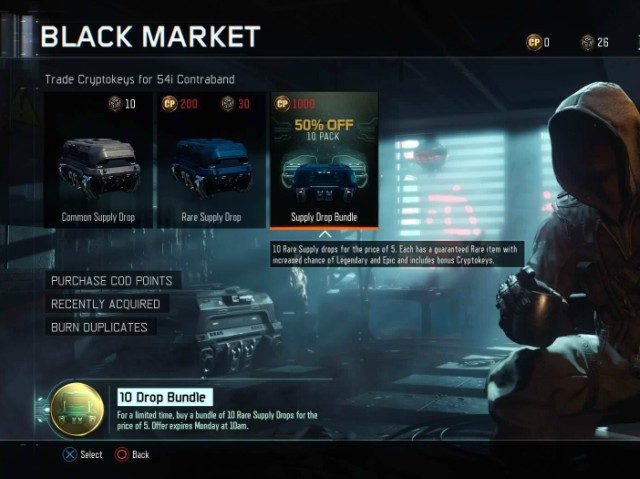Activision has patented a “system and method for driving microtransactions in multiplayer video games” but denied it is being used in any game.
The behemoth multi-billion dollar Call of Duty publisher referred to the revelation as “an exploratory patent,” filed in 2015 by “an R&D team working independently from our game studios.” The patent describes ways in which to manipulate multiplayer matchmaking in order to “encourage” gamers to spend money on in-game purchases.
Lest this be interpreted any other way, Activision was ready with examples in the patent filing. In their own words:
For example, in one implementation, the system may include a microtransaction engine that arranges matches to influence game-related purchases. For instance, the microtransaction engine may match a more expert/marquee player with a junior player to encourage the junior player to make game-related purchases of items possessed/used by the marquee player. A junior player may wish to emulate the marquee player by obtaining weapons or other items used by the marquee player.
But that is far from the whole of it. The system would also (in theory) deliberately try to predict what items you might covet and dangle it like a digital carrot just beyond your reach:
In a particular example, the junior player may wish to become an expert sniper in a game (e.g., as determined from the player profile),” according to the patent. “The microtransaction engine may match the junior player with a player that is a highly skilled sniper in the game. In this manner, the junior player may be encouraged to make game-related purchases such as a rifle or other item used by the marquee player.
Of course, that presents an intrinsic need to validate that purchase. To do so, the patented methodology would simply turn you into the object of your former jealousy:
Doing so may enhance a level of enjoyment by the player for the game-related purchase, which may encourage future purchases. For example, if the player purchased a particular weapon, the microtransaction engine may match the player in a gameplay session in which the particular weapon is highly effective, giving the player an impression that the particular weapon was a good purchase. This may encourage the player to make future purchases to achieve similar gameplay results.
Activision went from $1.6 billion earned from in-game microtransactions in 2015 to $3.6 billion in 2016. However, the company told Rolling Stone‘s Glixel that the patented technology “has not been implemented in-game,” while developer Bungie, whose Destiny series is published by Activision, also denied using the tech.
Follow Nate Church @Get2Church on Twitter for the latest news in gaming and technology, and snarky opinions on both.

COMMENTS
Please let us know if you're having issues with commenting.